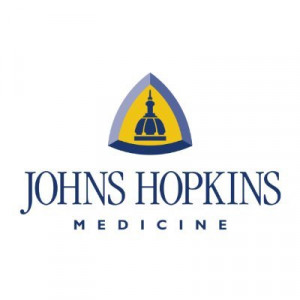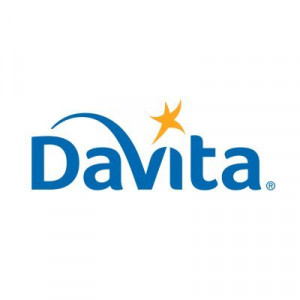The RNFA is a perioperative registered nurse who works in collaboration with the surgeon and the health care team members to achieve optimal patient outcomes. The RNFA must have acquired the necessary knowledge, judgment, and skills specific to the expanded role of the RNFA clinical practice. Intraoperatively, the RNFA practices under the direction and guidance of the surgeon and does not concurrently functions as a scrub nurse.
The RNFA has the obligation and responsibility to refuse to perform any delegated act, whether oral or written, if not within the parameters of his/her defined role and licensure.
Education:
Successful Completion of an accredited course in RN first assisting program that meets the ‘AORN standards’ Equivalent work experience as a RN First Assistant may be substituted for completion of accredited RNFA course.
Licensures/Certifications:
• Current registration with the Maryland State Board of Examiners of Nurses as a Registered Nurse.
• Healthcare Provider (CPR Certification).
• ACLS preferred
• Current CNOR certification.
• CRNFA certification preferred
Experience:
Minimum of 5 years diversified Perioperative nursing experience: both scrubbing and circulating proficiency.
Skills:
• Advanced knowledge of anatomy, physiology, surgical interventions, surgical techniques and surgical hazards relative to operative procedures wherein the RNFA assists.
• Advanced knowledge and skill in handling surgical instrumentation, in aiding in exposure, retraction, hemostasis, suctioning, tissue handling including dissecting, suturing, tying, stapling and stab wound.
• Analytical ability to conduct pre-operative and post-operative patient assessment, to evaluate physical and laboratory findings and to conduct patient teaching appropriate to age, background, psycho-social needs, medical/physical condition of the surgical patient.
• Ability to communicate effectively and appropriately with surgical patients and their significant others to enlist their involvement and cooperation in the entire treatment process.
• Ability to perform effectively in stressful and emergency situations with behaviors that are unique to functioning as a first assistant.
Principal Duties and Responsibilities:
• Clinical competency- Provided a safe, therapeutic core by collaboration with the surgeons and healthcare team in performing a safe operation with optimal outcomes for the patient. The RNFA practices perioperative nursing and must have acquired the necessary knowledge, skills, and judgment specific to clinical practice.
Teamwork – Communicates effectively and works cooperatively with others. Has respect for and understanding of clinical disciplines. Uses an integrated approach toward patient outcomes.
1. Demonstrates effective communication skills.
2. Delegates patient care activities to other healthcare team members and redirects unit activities a patient acuity and census changes.
3. Using evidence based practice model to works with a multidisciplinary team to implement practice changes and other initiatives in a positive and productive manner.
4. Assists the clinical partner/charge nurse by coordinating the staff and surgery schedule and handling day-to-day issues with positive outcomes.
5. Assists as needed with the staffing schedule coverage to meet daily department needs.
6. Assists with room set-up, opening supplies and room turn-over. Helps with lunches and breaks. Assists with patient positioning and safe transport of patient to the PACU.
7. Assists staff to indentify learning needs and helps to educate and train as needed. Acts as a preceptor.
8. Collaborates with the team in keeping costs under control and controls wastage in the room with regard to supplies; promotes maximum productivity.
9. Assists team leader, clinical partner, charge nurse in updating and developing physician preference cards.
Quality/Best practices – Utilizes standards, guidelines, and pathways for care delivery. Incorporates data and information to continuously improve care and practice to enhance outcomes.
1. The RNFA acts as a leader or participates in quality improvement process. Actively identifies variances and explores alternatives to care or practice.
2. Evaluates staff on practice delivery and recommends additional education if needed. Assists with implementation of practice initiatives.
Professional development- Ensures improvements in practice settings by assuming responsibility for self-development in life-long learning. Provides direction and guidance to others regarding practice, serves as a resource, preceptor, and mentor. Leadership skills demonstrated in decision making and problem solving.
Clinical and Technical Skill
1. Demonstrates knowledge of procedures to which assigned.
a. Participates in clinical decision making and modifies techniques based on clinical findings.
b. Identifies normal and abnormal anatomy.
c. Anticipates the needs of surgeon, steps in surgical procedure.
2. Assesses, plans, implements, and evaluates patient care needs.
a. Interviews the patient and family preoperatively to assess patient care needs.
b. Collaborates with the surgical team members to plan perioperative patient care.
3. Communicates relevant date to team members.
a. Reports lab results, x-rays. Diagnostic tests.
b. Discusses procedures and special techniques to be implemented during surgery.
c. Indentifies any unusual instrumentation required.
4. Analyzes critical situations and initiates appropriate corrective or preventative action.
a. Applies principles of aseptic technique and reports any variances.
b. Identifies and reports safety hazards.
c. Monitors changes in patient’s condition and reports concern to appropriate team members.
d. Prioritizes calmly and efficiently in emergency situations.
5. Demonstrates the following skills:
a. Preparation of the surgical site
i. Shaving
ii. Positioning
iii. Surgical Prepping
b. Draping
c. Surgical Site Exposure - under the direction and guidance by the surgeon
i. Retraction
ii. Wound Exposure – i.e. Dissection, initial surgical incision/stab wound, secondary trocar insertion
iii. Tissue Handling
d. Suctioning
e. Manual dexterity in appropriate use of surgical instrumentation
f. Hemostasis
i. Electrosurgery
ii. Bipolar cautery
iii. Sponging
iv. Clamping
v. Collagens
vi. Bone wax
vii. Other: _________
g. Suturing skills
i. Knot-tying
ii. Stapling
iv. Cutting
v. Approximation
vi. Ligating vessels
vii. Skin closure
viii. Subcuticular closure
ix. Securing wound drains
h. Application of wound dressing
i. Assists in post-op care and transfer of the patient from the operating room.
Intra-operative phase (under the direct supervision and direction of the operating surgeon.)
Positions, preps, and drapes patient.
Provides hemostasis by clamping blood vessels, coagulating bleeding points, ligating vessels, and by other means as directed by the surgeon.
Provides exposure through appropriate use of instruments, retractors, suctioning, and sponging techniques.
Handles tissue as directed by the surgeon (i.e. dissecting, stab wound (nick) for laparoscopy surgery or drains).
Performs wound closure as directed by the surgeon: sutures the peritoneum, fascia, subcutaneous tissue, and skin.
Applies surgical dressings.
All roles must demonstrate GBMC Values:
Respect
I will treat everyone with courtesy. I will foster a healing environment.
- Treats others with fairness, kindness, and respect for personal dignity and privacy
- Listens and responds appropriately to others’ needs, feelings, and capabilities
Excellence
I will strive for superior performance in every aspect of my work. I will recognize and celebrate the accomplishments of others.
- Meets and/or exceeds customer expectations
- Actively pursues learning and self-development
- Pays attention to detail; follows through
Accountability
I will be professional in the way I act, look and speak. I will take ownership to solve problems.
- Sets a positive, professional example for others
- Takes ownership of problems and does what is needed to solve them
- Appropriately plans and utilizes required resources for various job duties
- Reports to work regularly and on time
Teamwork
I will be engaged and collaborative. I will keep people informed.
- Works cooperatively and collaboratively with others for the success of the team
- Addresses and resolves conflict in a positive way
- Seeks out the ideas of others to reach the best solutions
- Acknowledges and celebrates the contribution of others
Ethical Behavior
I will always act with honesty and integrity. I will protect the patient.
- Demonstrates honesty, integrity and good judgment
- Respects the cultural, psychosocial, and spiritual needs of patients/families/coworkers
Results
I will set goals and measure outcomes that support organizational goals. I will give and accept help to achieve goals.
- Embraces change and improvement in the work environment
- Continuously seeks to improve the quality of products/services
- Displays flexibility in dealing with new situations or obstacles
- Achieves results on time by focusing on priorities and manages time efficiently
Pay Range
Final salary offer will be based on the candidate's qualifications, education, experience and alignment with our organizational needs.
COVID-19 Vaccination
All applicants must be fully vaccinated against Covid-19 or obtain a GBMC approved medical or religious exemption prior to starting employment at GBMC Healthcare, to include Gilchrist and GBMC Health Partners.
Equal Employment Opportunity
GBMC HealthCare and its affiliates are Equal Opportunity employers. All qualified applicants will receive consideration for employment without regard to race, color, religion, sex, sexual orientation, gender identity and expression, age, national origin, mental or physical disability, genetic information, veteran status, or any other status protected by federal, state, or local law.









